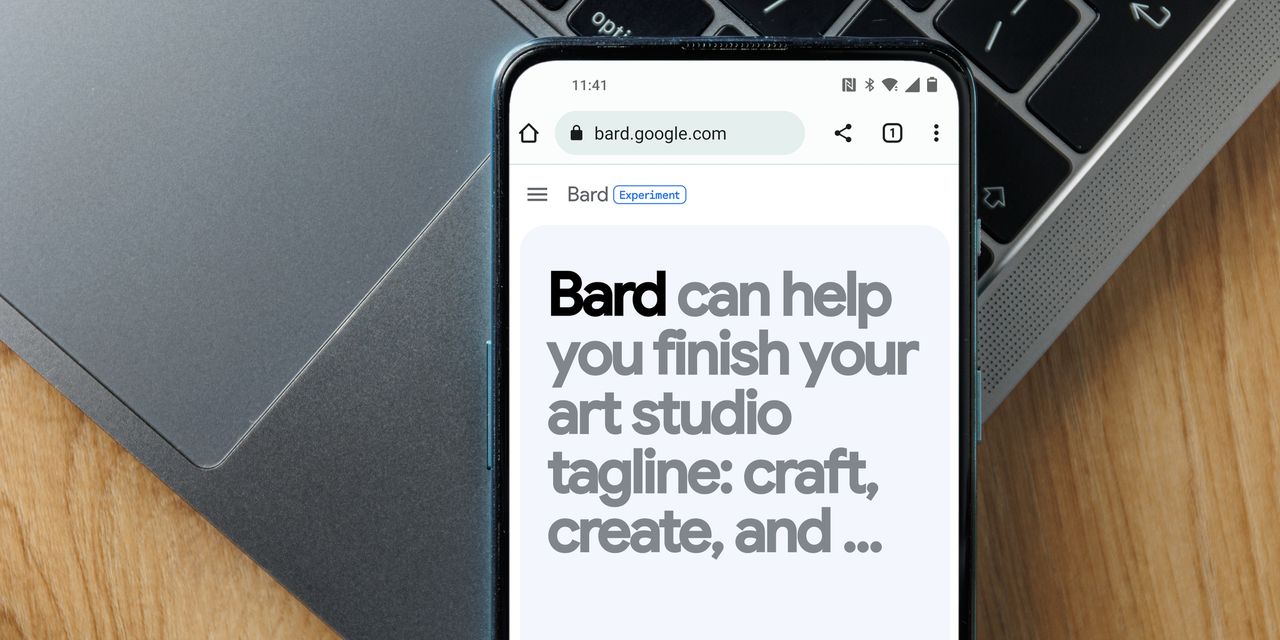Google was one of the most successful initial public offerings of all time—and its internet search arm has been one of the best businesses ever created.
As Bernstein analyst Mark Shmulik pointed out in a recent research note, the company now known as
Alphabet
(ticker: GOOGL) has produced an average annual return of 23% since its 2004 public debut. Google at launch was worth $23 billion—and it now has a market cap of $1.5 trillion, trailing only
Apple
(AAPL) and
Microsoft
(MSFT) among U.S. stocks. That includes a 34% rally this year, driven by the market’s enchantment with all things generative AI.
But some analysts are getting worried—and maybe you should be, too.
Hiding beneath this year’s impressive rally in Alphabet shares have been several whipsaw shifts in investor sentiment. The stock slumped 12% in February, after Microsoft launched Bing Chat, powered by OpenAI, which had launched ChatGPT on Nov. 30.
But the slide didn’t last. In May, additional Google AI product announcements turned sentiment around, triggering newfound confidence that Google’s years of investment in search and artificial intelligence would pay off—and keep the Bing threat at bay.
“Google just took that narrative back. We don’t believe there will be only one AI winner,” Evercore ISI analyst Mark Mahaney wrote in a research note following the Google event. “The narrative that Google would be generative AI roadkill was just plain wrong.”
Alas, sentiment is shifting again, as the world learns more about the power of AI. In a research note previewing Alphabet’s June financial results,
Wells Fargo
analyst Ken Gawrelski inched up near-term estimates, citing “recent strong ad market trends.” But he is worried about the future.
“As the global search incumbent with nearly 90% revenue share, we see more risk than opportunity and do not view Alphabet as an AI winner,” he writes, reiterating his Equal Weight rating. He warns that Alphabet faces both increasing competition and higher costs.
Here’s why the market is getting jittery:
People love AI chatbots. In an eye-opening report, BofA Global Research wrote recently that a survey of more than 1,100 U.S. internet users found that 59% use ChatGPT, 51% use Bing, and 34% use Alphabet’s Bard chatbot. Among other things, the survey found that 45% would use Google more as they integrate AI tools with core search—but 19% said they would shift some of their searches to ChatGPT and Bing. Asked which chatbot they would use if they could only pick one, 49% chose ChatGPT, versus 26% for Bing and 21% for Bard.
AI isn’t cheap. Bernstein’s Shmulik this past week reduced his rating on Alphabet shares to Market Perform from Outperform. Among other things, he notes that the company’s accelerating push into chatbots and other generative AI tools means a ramp-up in hiring and a pickup in capital spending. That could mean pressure on earnings and free cash flow.
Bard has no ads. “There are currently no ads on Bard,” says Bard, in response to my query to the bot. Bard noted that Google plans to use Bard queries to better target ads. “It is unclear when these ads will be rolled out, or how they will be integrated into Bard,” adds Bard. “However, it is possible that users will start seeing ads on Bard in the future. Meanwhile, you can use Bard without having to worry about seeing any ads. Bard is a free tool…and it is not currently used to generate revenue for Google.” Google didn’t respond to a request for comment.
Google has a real estate problem. Try this—go to Google’s home page, click on the little flask icon at the top right, and opt in to Google with SGE, or Search Generative Experience. At the top of the search results page, you get a big window with a generative AI answer to your query. In a regular Google search, the top of the page would be littered with sponsored listings. Says Shmulik: Google “risks creating a near-term revenue air pocket by cannibalizing prime real estate for their gen-AI results, which will take time for ad buyers to adopt.”
There are other places to spend ad dollars. Shmulik sees multiple threats to the Google ad business beyond Bing and AI. He sees the emergence of ad platforms hosted not by just
Amazon.com
(AMZN), but also
Walmart
(WMT),
Uber Technologies
(UBER), TikTok, and the online travel agencies as a competitive threat. “AI headlines have masked a very real threat to Google’s search business from retail media,” the analyst says, adding there are signs that
Meta Platforms
(META) is clawing back some ad dollars lost amid Apple’s crackdown on threats to iPhone user privacy.
Regulatory risk is rising. Shmulik contends Alphabet has deeper regulatory risks than the rest of the tech megacaps. He notes that both domestic and European Union regulators are pushing the company to spin off its ad tech business, and that the Department of Justice lawsuit over the company’s search business goes to trial in September. He sees an “outside chance” the case could strike down Google’s deal to provide search services to Apple products as anticompetitive.
Is AI friend or foe?
UBS
analyst Lloyd Walmsley, who also cut his rating on Alphabet stock this past week, says the answer is unclear. He notes that Google has substantial data it can leverage for gen-AI applications. But he also sees risks from a more competitive landscape, increasing capital intensity, and disruption to the ad business as Google figures out how to revise its search results page for the AI era.
Write to Eric Savitz at [email protected]
Read the full article here










